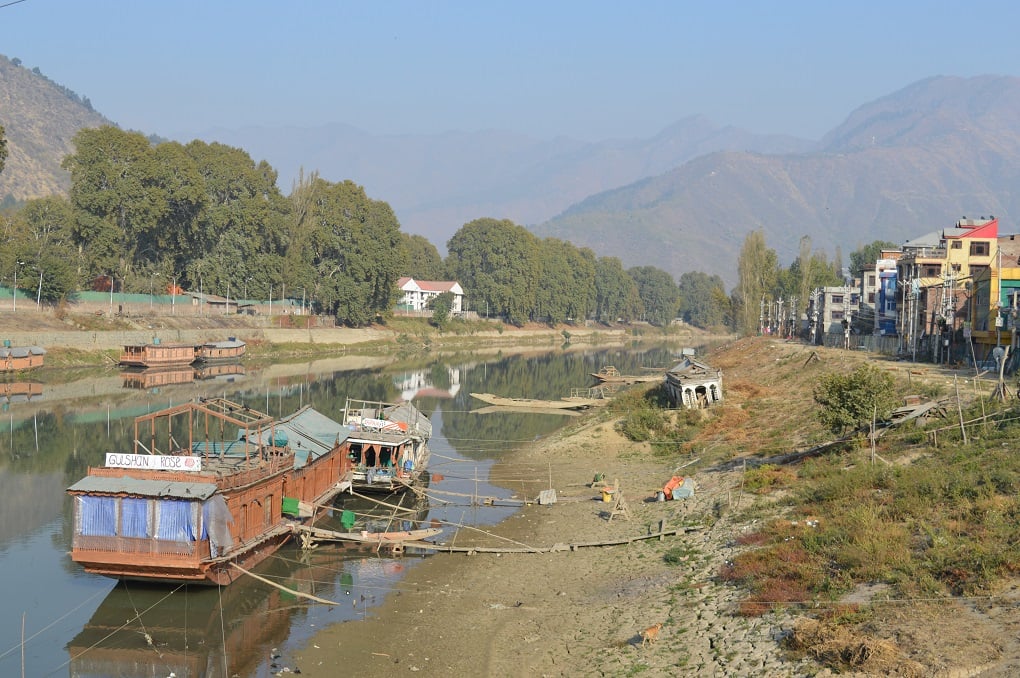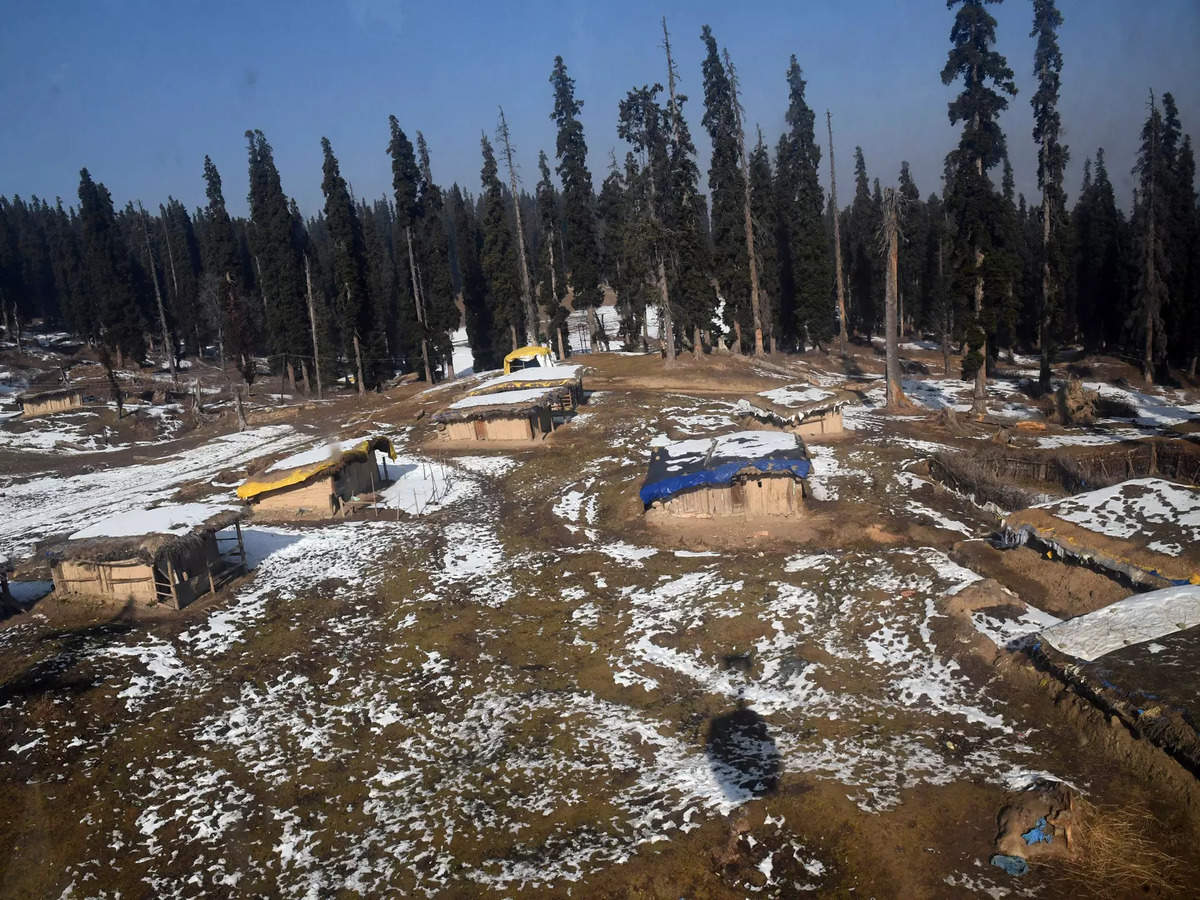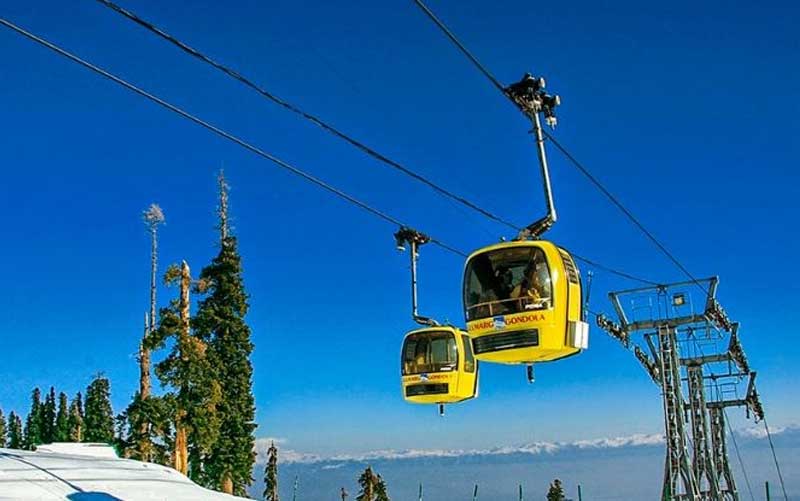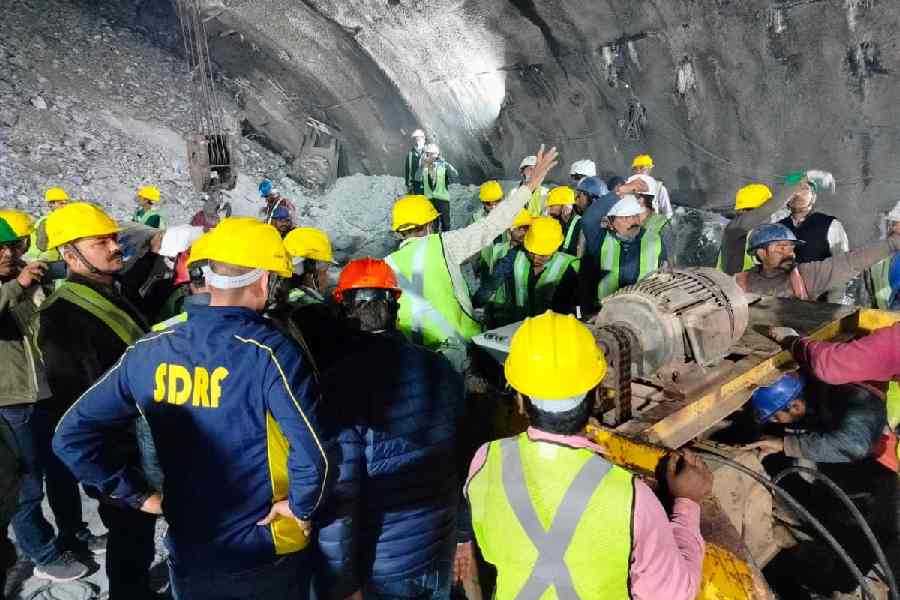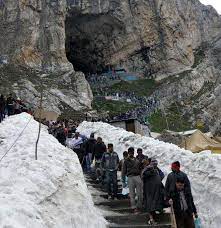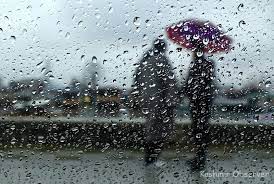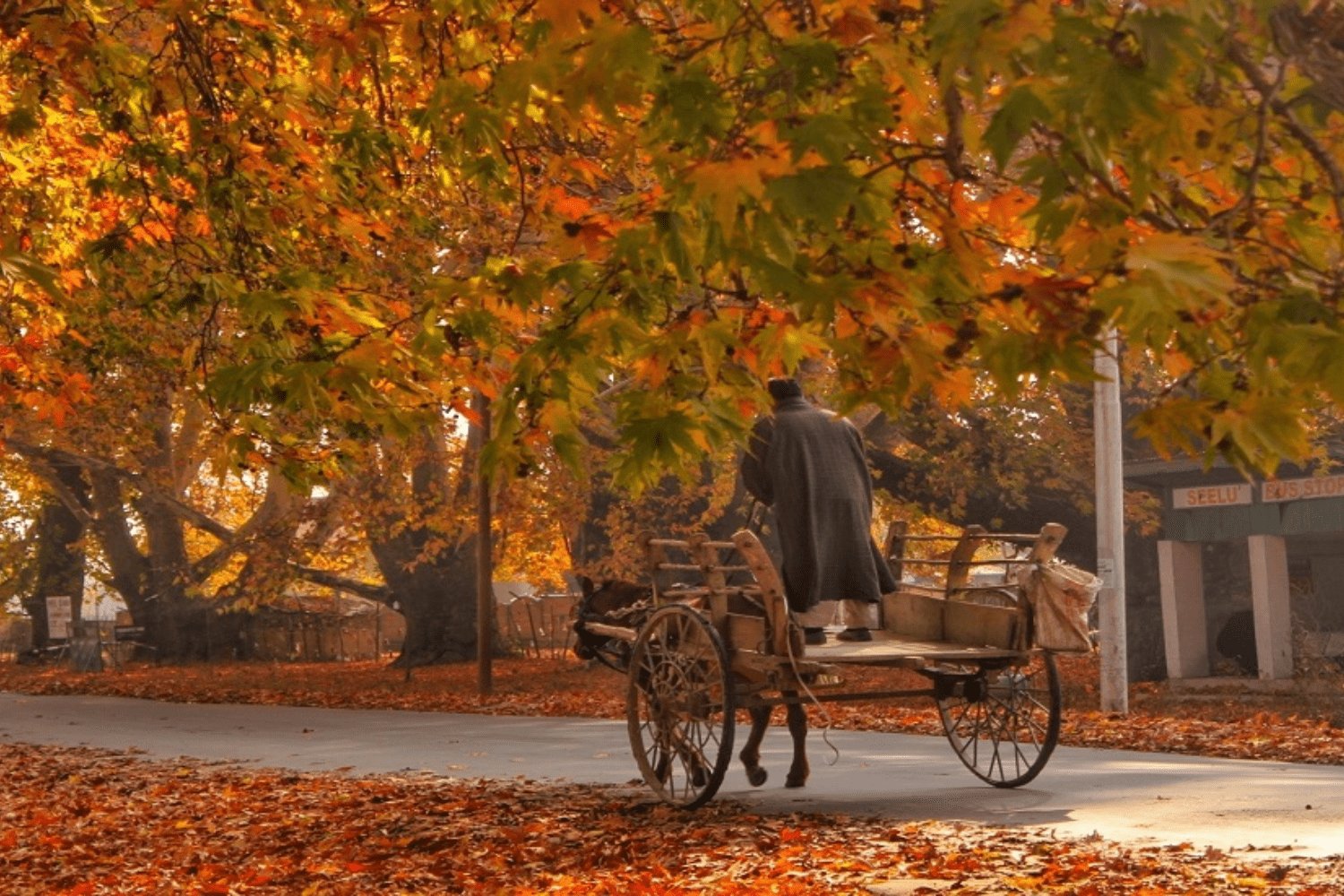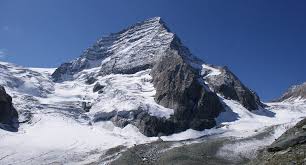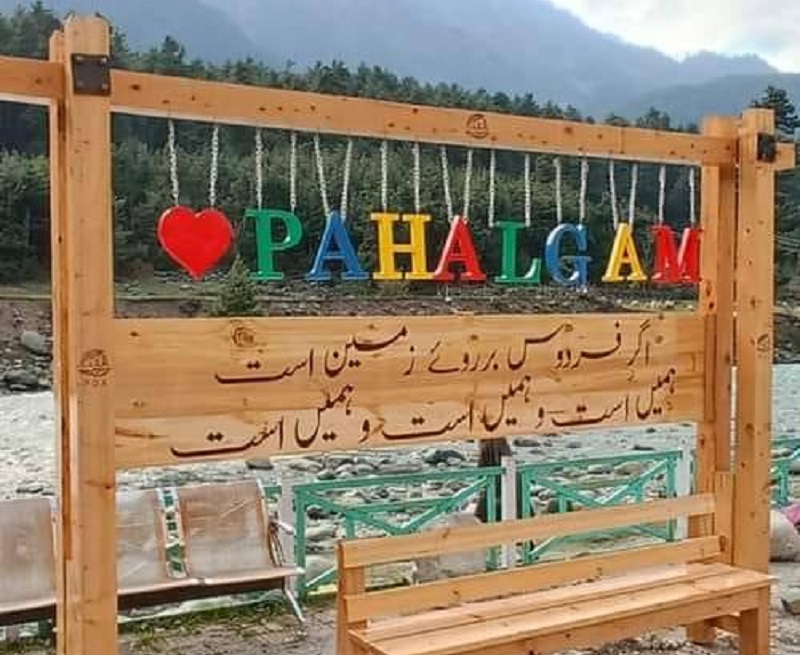The Jhelum River Runs Dry: A Looming Crisis in Kashmir By : Javid Amin The mighty Jhelum River, once a vibrant artery pulsating through the heart of Kashmir, now murmurs a desperate plea. Its once abundant flow, nourishing the land and cradling diverse life, has dwindled to a mere shadow, exposing parched riverbeds and painting a grim picture of an impending water crisis. At Sangam, in South Kashmir, and Asham, in the north, the river has plunged to its all-time lowest levels, a chilling testimony to the fragile balance being…
Read MoreCategory: Environment
Environment
Gone with the White Wind: Melting Mountains Paint a Grim Picture for Spring Runoff
Gone with the White Wind: Melting Mountains Paint a Grim Picture for Spring Runoff Dry, snowless peaks have cast a shadow on tourism in Kashmir and Himachal Pradesh but the impact of the underlying causes on the next few months is far more worrying — for they could portend a warmer spring. The absence of active western disturbances and shortage of rain and snow will have implications for the Rabi (winter) crop and are suggestive of high temperatures early in spring, experts said. In December, the rain deficiency was 79%…
Read MoreA Silent Alarm Bell: Climate Change Causes Dryspell In Kashmir, Gulmarg’s Snowless Season Highlights Vulnerability of Himalayan Ecoregion
Kashmir’s Silent Winter: A Climate Change Symphony of Loss and Hope By: Javid Amin In the breathtaking tapestry of the Himalayas, where emerald valleys dance with snow-capped peaks, winter usually paints Kashmir in a pristine tapestry of white. Yet, this year, a disquieting silence hangs heavy in the air, broken only by the wind whistling through barren branches. Gulmarg, the glittering crown jewel of winter tourism, lies stark and snowless, its ski slopes yearning for the embrace of fallen flakes. This unprecedented dry spell, a jarring departure from Kashmir’s historical…
Read MoreWhere’s the White Wonderland? Kashmir Awaits Winter Snow, Gulmarg’s White Blanket Stolen
Kashmir’s Snowy Sojourn Interrupted: El Niño Casts a Dry Spell Over Winter Wonderland The ethereal image of Kashmir blanketed in winter’s pristine white seems a distant memory this year. In place of the glistening slopes and powder-soft blanket, Gulmarg and the surrounding valleys wear a new, unsettling attire – one of barren brown slopes and anxious murmurs. Where has Kashmir’s winter wonderland, a crown jewel of Indian tourism, seemingly vanished? An Alarming Aridity: The answer lies in a stark statistic: a 79% rainfall deficit plaguing the Kashmir Valley throughout December…
Read MoreFrom Uttarakhand to Kashmir: Understanding the Himalayan Development Dilemma in Depth
Reevaluating Himalayan Development Models: Lessons from Uttarakhand Tunnel Collapse and Kashmir Challenges By: Javid Amin The collapse of a tunnel in Uttarakhand recently has reverberated as more than just a tragic incident; it’s a poignant call to reconsider the development strategies in the Himalayan region. To grasp the implications fully, it’s imperative to widen the lens beyond Uttarakhand, shedding light on the similar challenges faced by regions like Kashmir. The Himalayas, known for their breathtaking landscapes and ecological significance, are experiencing increased human intervention. The Uttarakhand tunnel collapse is a…
Read MoreAmarnath Cave Shrine In Kashmir Himalayas Gets Motorable Road, But At What Cost?
A Road to Development or Ecological Peril? By: Javid Amin The Amarnath Cave Shrine, a place of divine serenity ensconced in the lofty Himalayas of Kashmir, is more than just a pilgrimage site. It’s a spiritual beacon that draws millions of Hindu devotees from across the world. At an altitude of over 3,800 meters, this shrine is not just a religious destination; it’s an arduous journey into the heart of nature’s splendor. However, the recent developments in the Kashmir Valley, driven by the Indian government’s initiatives, have brought about significant…
Read MoreMeT Predicts Light Rain Spell in Jammu and Kashmir From October 7
The meteorological department said that the weather was mainly clear across the union territory during the day. The meteorological department said that the weather was mainly clear across Jammu and Kashmir during the day. “There was light snowfall in higher reaches particularly in Sonamarg and Gurez on Thursday night. However, the weather improved and was mostly dry today,” said an official of MeT. After overnight rains and snowfall over higher reaches of Kashmir, the weather improved in Jammu and Kashmir on Friday. The meteorological department said that the weather was…
Read MoreKashmir experiences first major rains of autumn season
The weather turned cloudy in the afternoon with mild to heavy rains in the evening, particularly in central and north Kashmir areas The first major rains of the autumn season lashed parts of Kashmir on Monday as a Western Disturbance hit the region, bringing down the temperatures. The weather turned cloudy in the afternoon with mild to heavy rains in the evening, particularly in central and north Kashmir areas. The region witnessed dusty winds after weeks of mostly dry weather. “The rainfall has started across Kashmir and a few parts…
Read MoreThe Glacier of Pahalgam: A Breathtaking Natural Wonder
It is a part of Himalayan range and is located some 26 kilometres north of Pahalgam By: Mohammad Jalal-Ud-Din One of the great problems world confronts today is its self-begotten woe of environmental pollution. Summarily the environmental pollution is the summative result of harmful activities of man against nature. This is somewhat paraphrased into air, soil/land, water, noise, thermal and radioactive pollutions. Of this air pollution is the main type threatening the environment, plants, humans, animals and all living organisms. This effects our glacial reserves also. Kolahoi glacier, which some…
Read MorePahalgam’s tourism carrying capacity exceeded, leading to environmental degradation and social disruption
Pahalgam’s environment and culture under threat from tourism By : Javid Amin Pahalgam, nestled in the picturesque region of Jammu and Kashmir, India, has long been renowned for its breathtaking natural beauty. Its lush mountains, meandering rivers, and verdant forests have made it a favored tourist destination. However, in recent years, Pahalgam has encountered a host of challenges, primarily centered around environmental degradation and the growing issue of overtourism. Foremost among these challenges is environmental degradation, stemming from several interconnected factors. Deforestation, driven by logging and land clearance, poses a…
Read More
